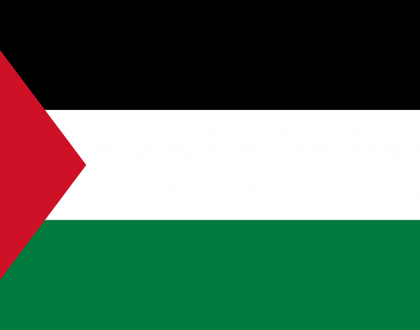2:67-74 A Question of Murder

A Question of Murder
When Musa said to his people, “Allah commands you to slaughter a cow”, they said, “Are you making fun of us?” He said, “I seek refuge with Allah from being one of the ignorant.” (67) They said, “Pray for us to your Lord that He makes it clear to us what sort (of cow) should she be.” He said, “He says she should be a cow neither too old, nor too young – of some middle age in between. Now, do what you are being asked to do.” (68) They said, “Pray for us to your Lord that He makes it clear to us of what colour it should be.” He said: “He says that she should be a yellow cow, rich yellow in her colour that should please the onlookers.” (69) They said, “Pray for us to your Lord that He makes it clear to us of what sort should she be, for this cow has made us confused and, if Allah wills, We shall certainly take the right course.” (70) He said, “He says that it should be a cow which is not tractable for tilling the soil or in watering the fields, (and it should be) sound and without blemish.” They said, “Now, you have come up with the right description.” Then they slaughtered her, although it appeared that they would not do it. (71) And when you killed a man, and started putting the blame for it on one another, while Allah was to bring forth what you were holding back. (72) So, We said, “Strike him with a part of it.” This is how Allah revives the dead; and He shows you His signs, so that you may understand. (73) When, even after that, your hearts were hardened, as if they were rocks, or still worse in hardness. For surely among the rocks there are some from which rivers gush forth, and there are others that crack open and water flows from them, and there are still others that fall down in fear of Allah. And Allah is not unaware of what you do. (74)
The Murder Mystery
The story of the cow, from which Surah Baqarah derives its name, relates to an incident in which a man was murdered. Bani Israel wanted to identify his killer so they approached Musa (peace be on him) and it was revealed that they should slaughter a cow. Once the cow was slaughtered, the man would be brought back to life and reveal the murderer. Bani Israel had not quite shaken off their hangover from their past in which cows were sacred. Asking them to sacrifice a cow therefore was a test of their faith and they responded with delaying tactics. By stringing together question after question about what sort of cow they should sacrifice, rather than getting on with obeying the command we see their trait of argumentation blow by blow under a microscope – disobedience under the guise of hair-splitting perfectionism.
Why? Why? Why?
Bearing this trait in mind, the companions of Prophet Muhammad (peace on him) placed a high value of the attitude of ‘we hear and we obey’. While children often play the seemingly ingenuous game of ‘why?’ when asked to do something, side-tracking their parents to put off doing what they were told, a person of imaan and taqwa complies immediately. Whether they poured their alcohol into the streets, or ripped up curtains to use as hijabs, the sahaba didn’t defer applying commands to their lives. They were not super human, but they had a level of piety that made their consciences sting when they hesitated.
The Prophet (peace on him) would feel annoyed when people asked too many questions on what is and isn’t permissible if Allah Almighty had not explicitly made certain things haram. This unnecessary probing is a recipe for bringing hardship upon ourselves. When Allah Almighty asked Bani Israel to slaughter a cow, any cow would have done. However their incessant questioning narrowed their choice, till they had to find and pay over the odds for the particular cow that fit the exact description.
Argumentation never brings goodness. Even punishment may ensue as a consequence. We have the hadith about how the knowledge of which day Laylatul Qadr falls on was taken away from us because two people were arguing. Ubaadah ibn as-Saamit (may Allah be pleased with him) said:
‘The Prophet (peace be on him) came out intending to tell us about Lailatul Qadr, however two men were arguing and he said: ‘I came out to inform you about Lailatul Qadr but so and so, and, so and so were arguing, so it was raised up, and perhaps that is better for you, so seek it on the (twenty) ninth and (twenty) seventh and the (twenty) fifth.’ (Bukhari)
Yet we see argumentation in our ummah all the time as people disagree about every detail of the deen. We are encouraged to promote peace rather than discord, which means restraining our egos even when we are in the right. The Prophet (peace on him) said:
‘Whoever does not argue when he is in the wrong will have a home built for him on the edge of Paradise. Whoever avoids it when he in the right will have a home built for him in the middle of Paradise. And whoever improves his own character, a home will be built for him in the highest part of Paradise.’ (Tirmidhi)
What is the point of any argument? When two points of view differ yet each side tries to impose its view on the other. The root is ego. Having the highest IQ isn’t always a guarantee that intelligence is used in the best way. In fact, Shaytan was the most intelligent of creatures, yet he used his intellect negatively. Our minds are not the source of obedience, but our hearts. Obedience springs from a heart that is not hardened by its ego.
Surah Baqarah, the lengthiest surah, replete with extensive references to our history from the beginning of creation, and numerous rulings, takes its name from the specific incident of the slaughter of a cow. Surely we are being told that Islam distilled to a single lesson is humility, so we can submit wholeheartedly to Allah Almighty?
Recommended Posts

Lessons in victory from Surat Al Ahzab
May 12, 2021

Defend Palestine. Lessons from Surat Al Ahzab
May 11, 2021


